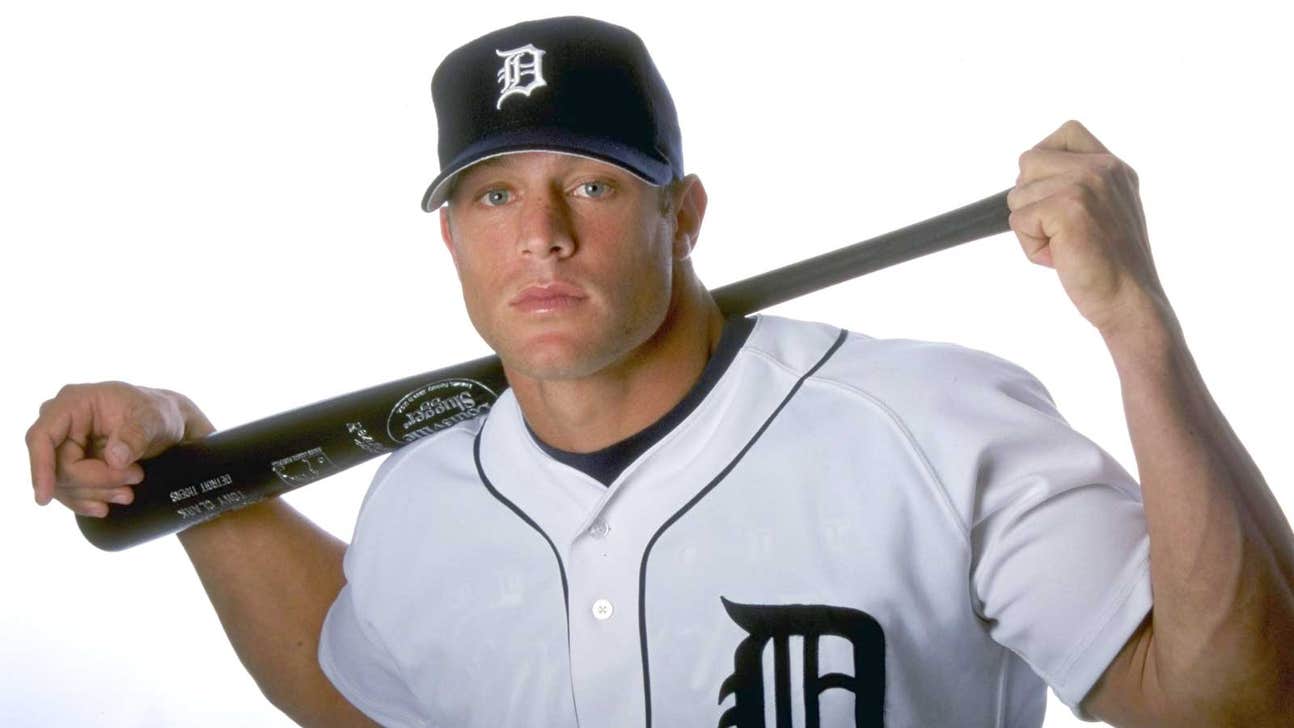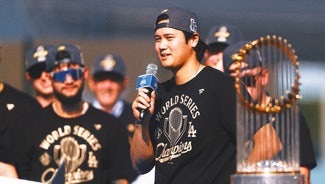
Kapler: Far from fond memories of ribbing, bullying in a baseball journey
Gabe Kapler is a former MLB player and current "Fox Sports Live" panelist. He is also a contributing writer for Baseball Prospectus, WEEI.com and Gammons Daily and has a weekly radio show on BAD radio on the "1310 the Ticket" in Dallas, Texas. Kapler played 12 seasons in the major leagues, and won a World Series as a member of the 2004 Boston Red Sox. Kapler owns the longest hitting streak in Texas Rangers history at 28 games and twice hit better than .300 in his career (2000 and 2008). You can follow Gabe on Twitter @GabeKapler.
I felt my face get red and a wave of anger fought to burst out of my pores. I was humiliated and lacked the coping skills necessary to brush it off. I had just been introduced to hazing at the MLB level.
The seeds of my embarrassment had actually been planted years earlier, when I was in the lowest level of minor league baseball making $850 a month. I was forced to earn some extra glue and made the hysterically shortsighted decision to pose for photos in very tiny and colorful swimwear for a fitness magazine, that would become the fuel to many a comical fire in my clubhouse environments over the years.
After my first go-round, I learned how to have fun with it but my initial first step was a doozy.
After a Double-A season in which I was named Minor League Player of the Year by several publications, I grabbed some positive media attention. Being the emotional, entrepreneurial capitalist that I was, I decided to try to strike and start an online fan club. Without laughing at myself at all, I, along with a marketing guru decided naively to charge a fee to belong.
The following spring training in Lakeland, Fla., I had a chance to make the Detroit Tigers roster without ever stepping foot in Triple-A. During an early stretch session on one of the backfields, we began to loosen as a team as usual and I quietly fell into my intense version of said warm-up.
As was the norm, a particular staff member (let's call him Bill) walked around the stretch telling stories and barking orders. This day's story was about a young man who was "a little too comfortable."
That young man was me, of course, and Bill continued to tell the story of my ill-advised fan club. The tale was pretty innocuous — I thought — until a huge banner dropped from the outfield fence revealing an enormous image of me at my most exposed with a headline that read "You can join his fan club for $39.95."
I went home that evening noticeably furious and had a serious conversation with my then-wife Lisa, about the risk associated with snatching Bill by the throat the following day during stretch in front of the team.
I opted reluctantly out of that fantasy and I'm glad I did, as Bill later became a respected friend. I soon understood the methodology. I was being effectively taught a lesson about self-promotion that has served me well. And, I developed thicker, more calloused skin as a result.
Although I vowed to myself that I would never be the ringleader of any similar incident, I began to authentically connect with the idea that through ribbing, hazing and light illumination of faults, coming of age can occur.
In some cases, this can even speed up player development as toughness off the field can spill over into plate appearances. No way to quantify, of course, but I can attest to feeling more confident after understanding banter and thereby feeling more connected to my teammates; the chest puffed out slightly further is always beneficial on the field.
The confidence is derived through fitting in societally, being accepted. I've finally fulfilled my rite of passage; now I belong. Now I can go play and know my teammates are beneath me, partially supporting my weight.
HORRORS OF HAZING
As I became a veteran player, I witnessed hazing of all sorts, a rookie having a mixture of baby powder and toothpaste poured on him while he was taking a dump by a single player. His teammates, of course, were privy to the prank prior and were together laughing and whispering like schoolgirls that the victim would burst out of the stall, pants at his ankles, and he did.
Also good for a giggle was the infamous "three man lift," and a man's clothes being soaked in his locker after he refused to dress up as a woman for a team flight. Ahhh, the good 'ol days.
On MLB team flights, adult beverages are often enjoyed. Usually, the youngest, most wet-behind-the-ears players will be responsible for carrying the beer and ultimately delivering it to the veterans.
When the flight lands, the fun escalates. On the bus traveling from the airport to the team hotel, it's not uncommon for a group of vets in the back of the players' bus to command the rookies to "get on the microphone," a practice that makes the kids act as an "American Idol" contestant extraordinaire.
Inebriated, the vets instruct the rooks on what song to sing over the speakers in the front of the bus. The goal, of course, is to cause as much embarrassment as humanly possible. I have one teammate in particular that I vividly recall slurring and shouting, explitives venomously flying like daggers through the air.
The whole bus reeked of degradation because the tone was so vicious, not playful at all. With refusal to sing, the jabs came faster and more furious, to the point that other vets would tell this player to mellow out. When he wasn't liquored up, this guy was the picture of a gentleman. Go figure.
Is this bullying? I suppose it depends on the man enduring the experience. Awareness goes a long way and the strong voice of a respected leader on a team can influence the rest of the group if things are getting out of hand. In the final days of Tiger Stadium, I'm confident Tony Clark knew just how far to let things escalate, which is why nothing passed the stage of simple discomfort with the team from my rookie season.
Now that I'm standing on a wide platform and sharing my opinions about players' performances and decisions, I'm keenly aware of the balance between honesty and insult. I routinely question my reflection, wondering if I've crossed the line.
WHO IS ACCOUNTABLE?
The moment I begin to pass judgment and shape the opinion of another, I run the risk of piling on, and have been guilty of just that. It is the job of former players who are now members of the media to be open and honest and express opinions.
This behavior, particularly well carried out by shock jock sports talk radio show hosts, could be perceived as ganging up on individuals who have little or no way of defending themselves, at least in the moment. You see, in our communities, it's so difficult to identify who the biggest bullies really are.
Kevin Youkilis suggested to me that the most abusive bullies on the block are the fans and the media.
"The amount of verbal abuse an athlete hears from opposing fans and sometimes their own is amazing," Youkilis said. "The problem is, people don't recognize this is the same thing that goes on in the clubhouse, tearing down individuals all the time."
I realized after some deeper conversation with Kevin that he thinks everyone should be held equally accountable, from the players to the fans to the media.
WHAT IS TOO FAR?
I can remember being in right field in Yankee Stadium and fans armed with media guides called out my family by their names and said absolutely unrepeatable things. I laughed to myself and it never bothered me.
I've always been of the mindset that we, the players, are the professionals and that fans can say whatever they like. I'm paid, in part, to let it roll off my back. But what if it did tear at me to the point of trauma? Does that then make those fans bullies and the player the victim?
Furthermore, the media can slam players at their lowest point, often times causing pain to the subject. Isn't that the ultimate form of ganging up and encouraging the masses to do the same regardless if the player stupidly begged for the attention?
Anti-schoolyard bullying has been a focal point of countless marketing and fundraising campaigns and rightfully so. I have 14- and 12-year-old boys and they know how unacceptable it is to make others feel inadequate mentally or physically. If one of my sons made a sign that said "Ricky Sucks," took it to school and then encouraged his friends to do the same, I'd be beyond upset.
But this season when Alex Rodriguez was hanging onto a pole as a tornado thrashed around him, fans in opposing ballparks and even at Yankee Stadium tried to peel his fingers off one by one.
Media members, myself included, openly criticized and in some cases laughed as a human being took it on the chin. Alex invited commentary with his actions as I did when I took those pictures at 21. Now, imagine little boys witnessing their dads spew hatred at ballparks and spin it forward.
Maybe this is a world full of bullies. While there is a relevant question of degree, a lot more of us live in glass houses than we'd like to believe on this subject.
If the incidents illuminated by professional sports are to be meaningful rather than merely representing a flash of controversy that disappears almost as quickly as it arrived, then we must seize the opportunity to look not just at the behavior that occurred in the context of one NFL or MLB team, but also at our own actions and how they are received.










